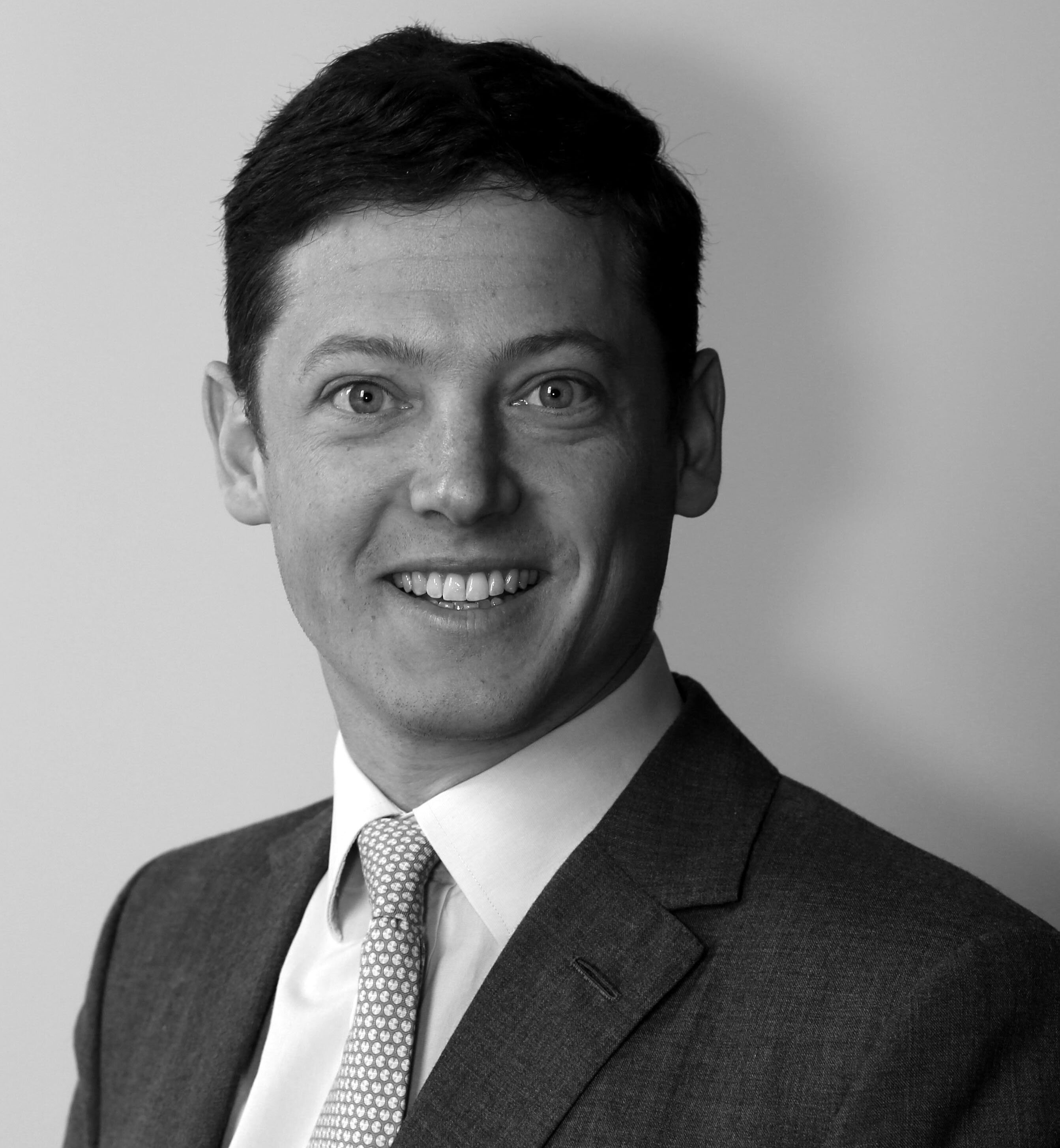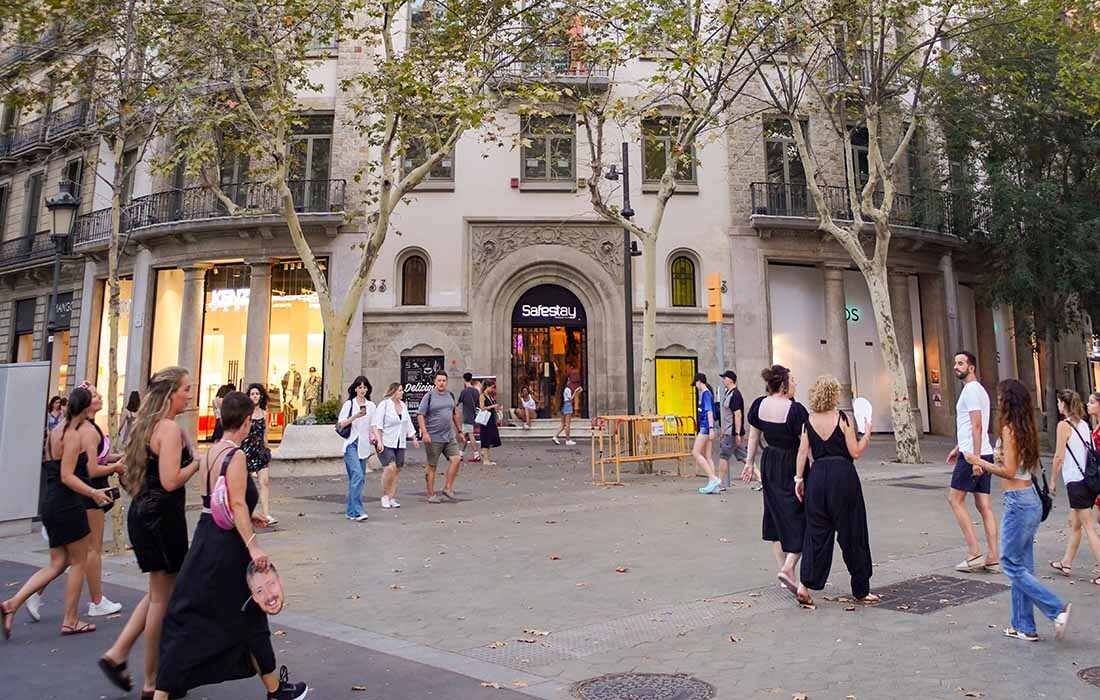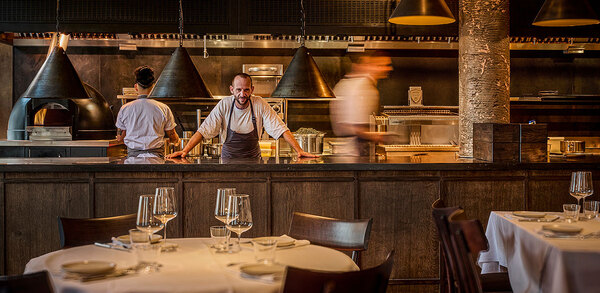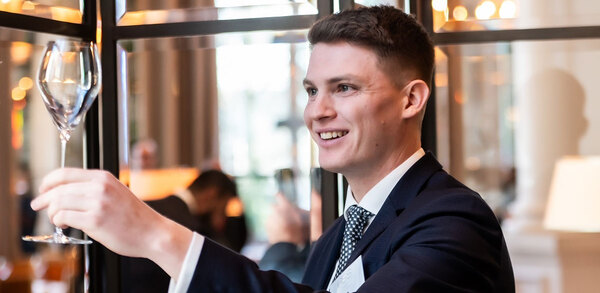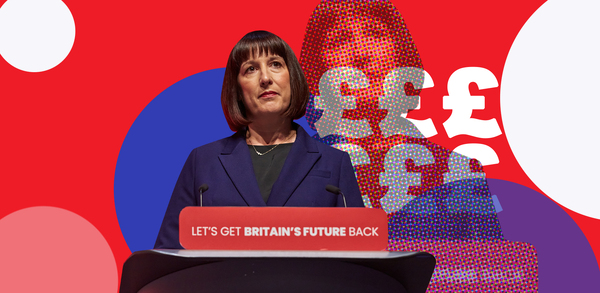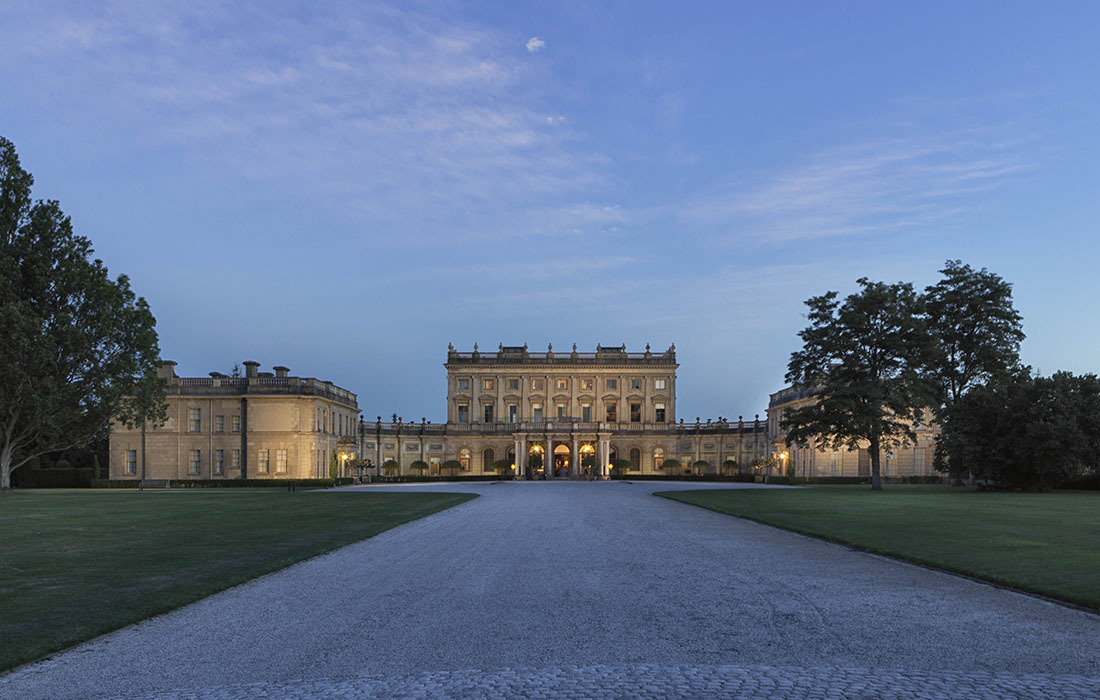Tailored to fit: Thomas Greenall takes the helm of Bespoke Hotels
Bespoke Hotels has a new chief executive in Thomas Greenall, the ex-jockey who has risen through the ranks to now being tasked with steering the acquisition of Shearings Hotels and reopening after coronavirus. David Harris meets him
How does a fresh-faced 35-year-old who has been in the hospitality business less than a decade become chief executive of the UK’s biggest independent hotel company?
Well, the family that Thomas Greenall comes from does no harm. With a bloodline that has been in the business for more than 250 years, to say that Greenall, appointed chief executive of Bespoke Hotels this summer, has a heritage in hospitality is an understatement.
The current Thomas Greenall’s ancestor and namesake founded the Lancashire brewery Greenall’s in 1762. The company was still operating hundreds of pubs when the current Thomas Greenall was growing up in the 1990s, and he can remember his weekend visits to the family firm’s properties very well. Over the years millions of people were picking up Greenall’s pints in Greenall’s pubs and staying in Greenall’s hotels, which later became De Vere.
He says: “I was brought up in pubs. We had to visit a pub every Saturday and Sunday before lunch.”
Although the family’s brewing had ended and its pubs been sold by 1999, De Vere hotels remained connected to the Greenall family. That direct link endured until 2006, when Thomas’ father, Lord Daresbury, stepped down as non-executive chairman of the group and most of the family’s direct interest was sold. As Lord Daresbury’s eldest son, Greenall himself is in line to be the future Lord Daresbury.
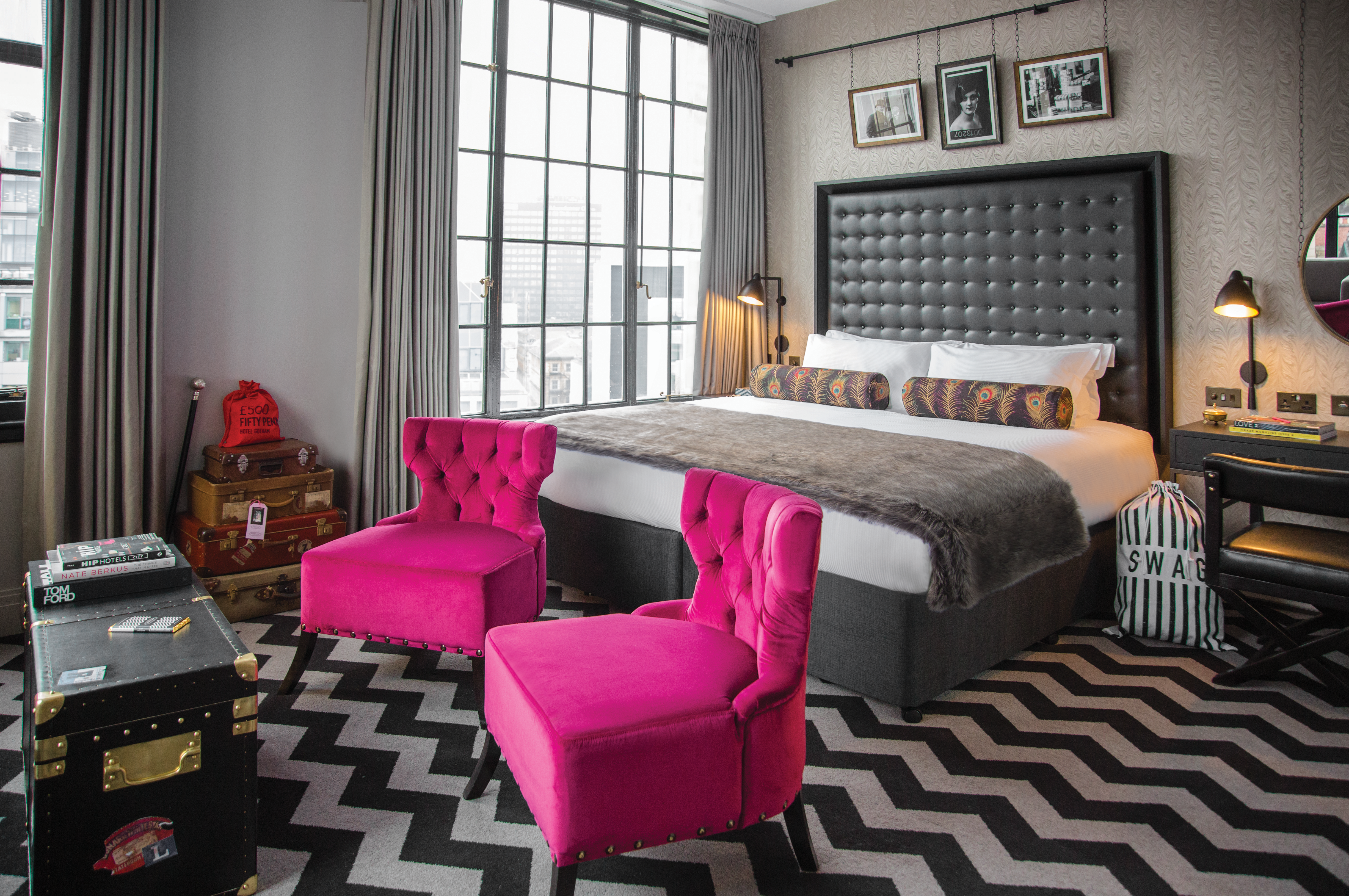
On Greenall’s appointment to chief executive at Bespoke he had been with the company for nine years, the last four as commercial director. Before that, he spent just over a year working as business development manager at Green’s Restaurant in London (which was set up by a group of individuals including his father).
One of the reasons he moved to a hotel group rather than a restaurant was a straightforward business one. He says: “I like restaurants but I am put off by the profit margins. Hotels are better for that.”
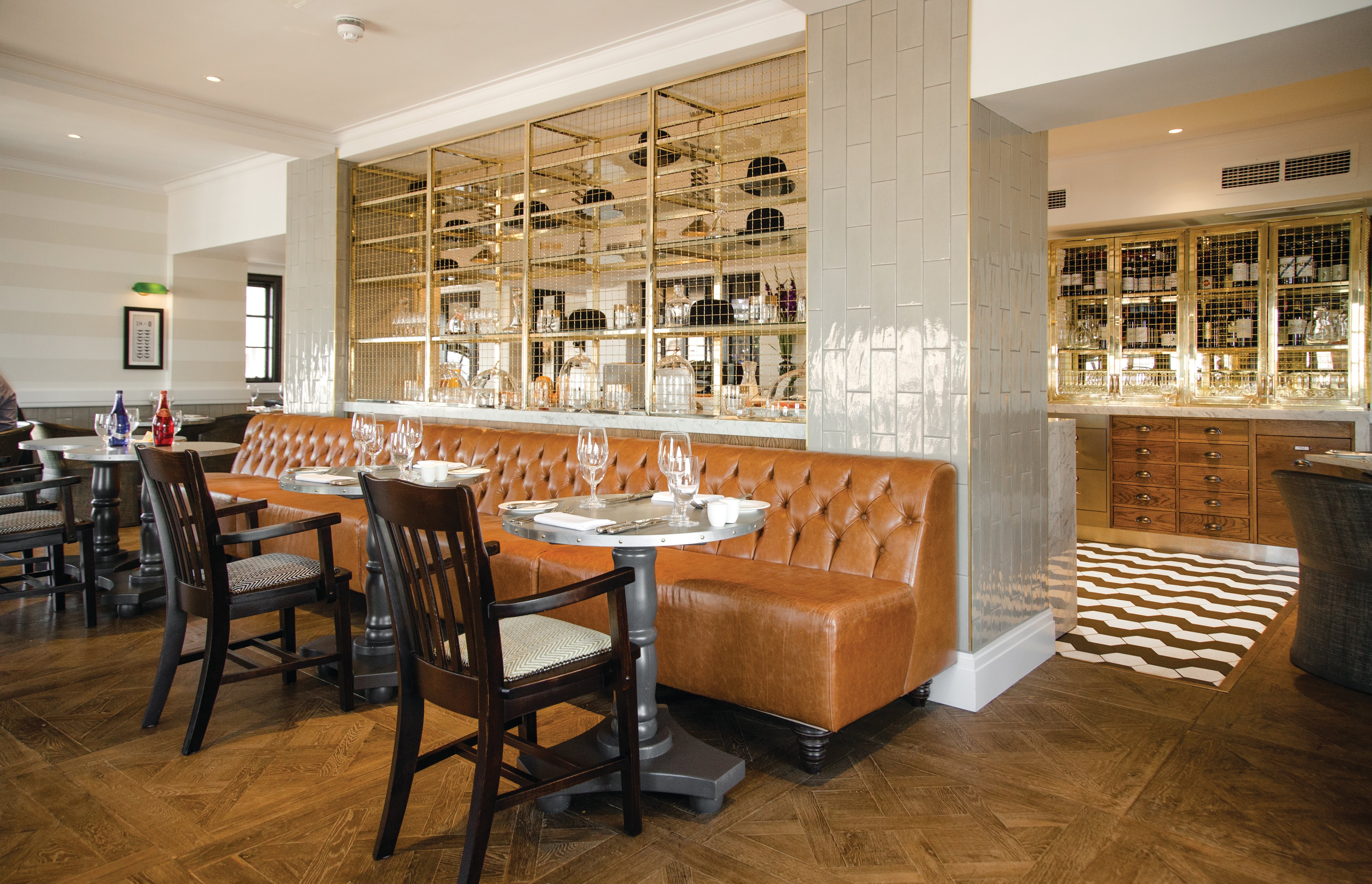
This is one reason why Greenall was happy to meet Bespoke’s founders, the veteran hoteliers Robin Sheppard and Haydn Fentum, a meeting that led to him joining the business. Greenall says: “I was desperate to get into hotels, so I was really pleased to get the opportunity”.
After some notably short spells in hotel management with Bespoke (see CV, below), Greenall admits he was glad to move into the broader role of commercial director.
He says: “I can assure you that Bespoke has many hotel managers who are a lot better at delivering hospitality than I am. I have always been more interested in the broader business aspect. I wanted to be a general manager for the experience that gave me, but not for the long term. I like taking the bigger picture on things. I prefer deals and new business.”
As if to prove the point, even before being promoted to the chief executive role, Greenall was overseeing just such a new deal, as the group took on the management contract for 40 ex-Shearings hotels. Shearings went into administration in May and later that month Greenall was already in talks. Initially Bespoke secured a caretaker role for the properties while he negotiated a full hotel management agreement. It was very important that Greenall established a good relationship with the new owners – a private equity company that is keen to stay in the shadows – to ensure a smooth transition.
A fresh start
Greenall’s plans to incorporate the former Shearings hotels fully into Bespoke are already well under way. Four of the 40 hotels have reopened: the Windermere and Derwentwater in the Lake District, the group’s Royal Weymouth hotel and the Pitlochry Hydro. At the time of writing, nine others are scheduled to open before the end of October, including the Royal Whitby, Liberty’s Blackpool, the Marine Llandudno, the Golden Lion in Hunstanton, the Burlington in Eastbourne, the Imperial in Exmouth and the Torbay in Torquay.
Greenall says that there are no plans to overtly brand the Shearings hotels, which traditionally have catered for coach tour business – reaching 90% of business in some cases. Greenall says that coaches will “continue to play an important role”, although he also wants to strengthen the ex-Shearings hotels’ position in the family market and attract independent travellers.
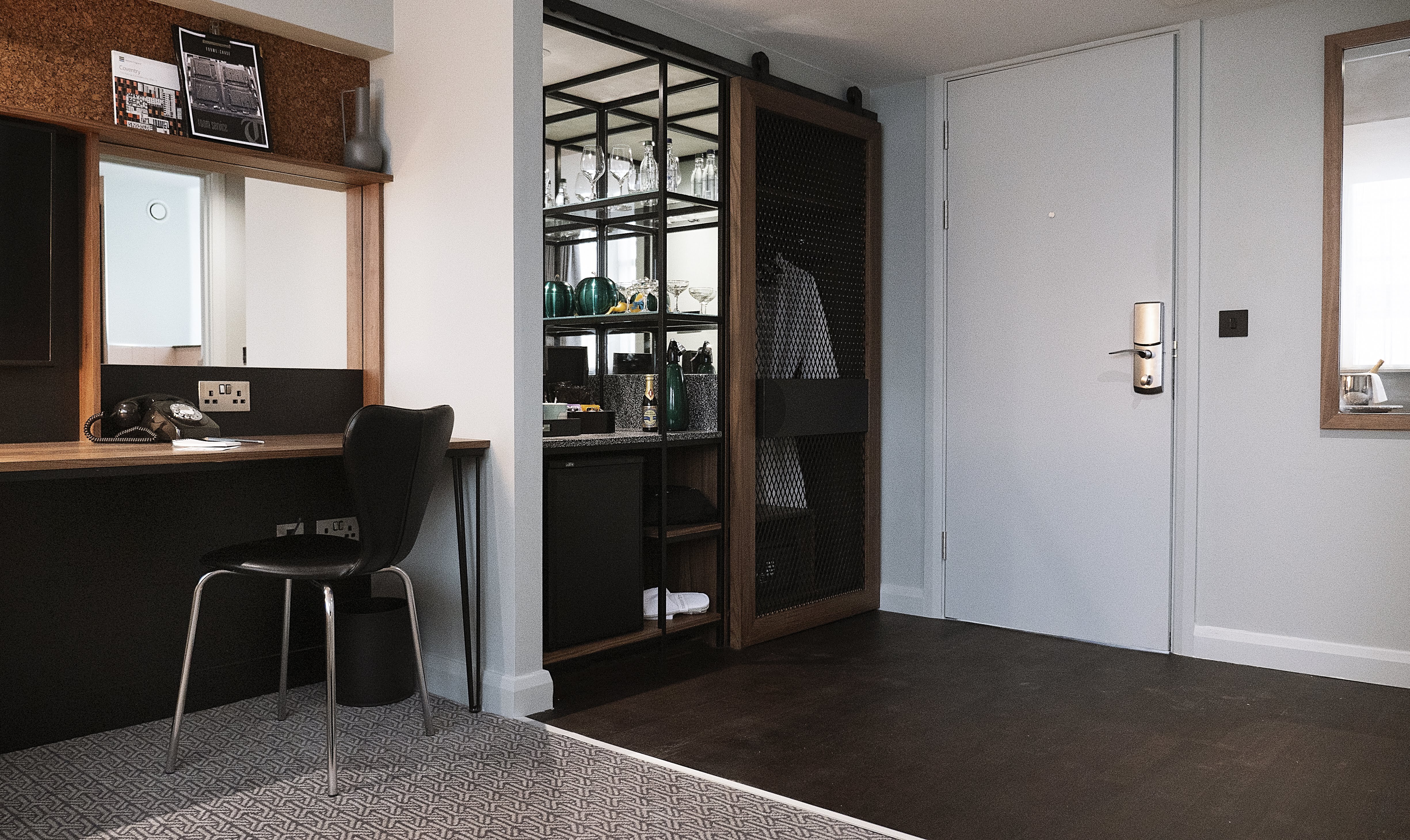
Bespoke will also be re-employing some of those staff who lost jobs because of the administration. Greenall says that the staff that Bespoke have taken on are a mix of old hands and new blood. Some of the hotels are also going to keep their staff accommodation, which was a notable feature of the Shearings properties, particularly those in isolated places where offering a place to live can be crucial to recruitment.
Greenall is relaxed about what the addition of the Shearings group will do to the character of Bespoke overall, partly because Bespoke’s marketing preference has always been to emphasise the character of individual hotels rather than fiercely brand them. Bespoke, in so far as it has an identity, believes in giving its hotels scope to be themselves, although that hasn’t stopped it from creating a couple of notable nascent brands in Gotham and Brooklyn.
Nevertheless, Greenall says: “We don’t believe the brand is the most important thing. We champion the individuality of each hotel.”
We don’t believe the brand is the most important thing. We champion the individuality of each hotel
An approach like this is refreshing in a hospitality world where branding can sometimes seem overwhelming, and Greenall himself gives a real sense of someone who is determined to follow his own path. Earlier in life that included him walking away from an economics course at Durham University in order to pursue a successful few years as a national hunt jockey (see below). “I was distracted by the racing,” he says.
Greenall spent nearly a decade racing but when he retired from serious riding, the hospitality business was the obvious choice of career. And Bespoke seems to suit him well.
Even before the addition of Shearings, the hotels in the Bespoke group were about as broad a mix as you could imagine. They range from traditional luxury, such as the five-star Chester Grosvenor, owned by the Duke of Westminster and with a restaurant holding one of the longest-established Michelin stars in the UK; to stylish old coaching inns, such as the White Horse in Dorking. The Bespoke website lists hotels in a wide variety of categories, including ‘boutique’, ‘hip and trendy’, ‘business and conference’, ‘family’, ‘golf’, ‘spa’, ‘pet friendly’, and ‘luxury and romantic’.
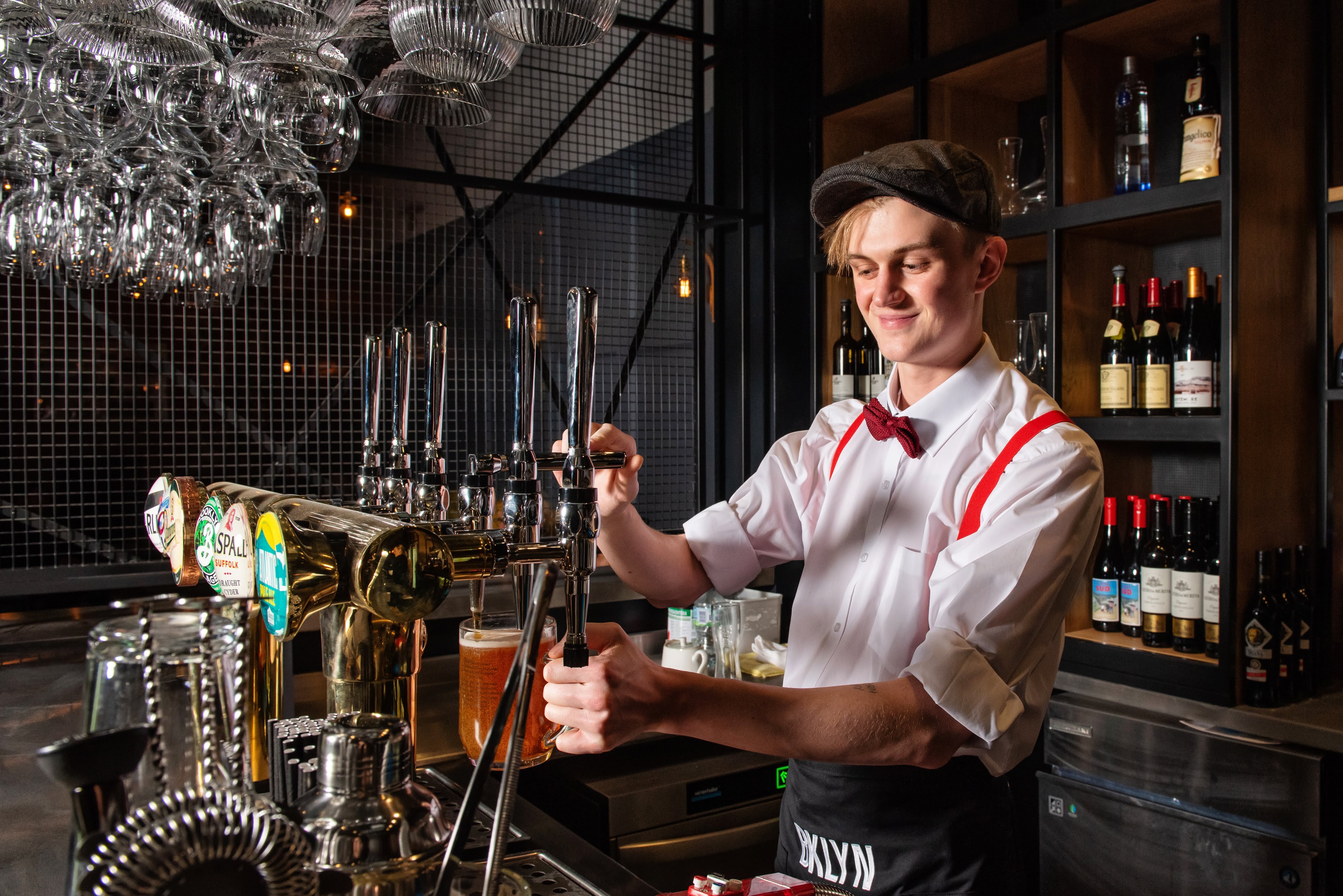
Bespoke even has international hotels on its website, in Mauritius, Spain, Switzerland and the United Arab Emirates, although Greenall describes these as “marketing arrangements” rather than fully fledged parts of the portfolio.
He says: “We market the overseas hotels on behalf of their owners. Mostly they are run by friends or contacts of Robin [Sheppard] from his many years in the business.”
Growth on the horizon
Bespoke, founded 20 years ago by Sheppard and Fentum, has grown steadily ever since, and is now the UK’s largest independent hotel group. A key part of Greenall’s role is to continue that expansion, although both Sheppard and Fentum remain involved with the company, Sheppard as president and Fentum as chairman.
Greenall is keenly appreciative of the support of both of Bespoke’s founders and the management restructure that came with his appointment has clearly been thought through. He says: “Our roles are clearly defined. Robin has already taken a step back, however, he still has certain owner relationships and I keep pushing him to maintain his huge sales and marketing influence at Bespoke.
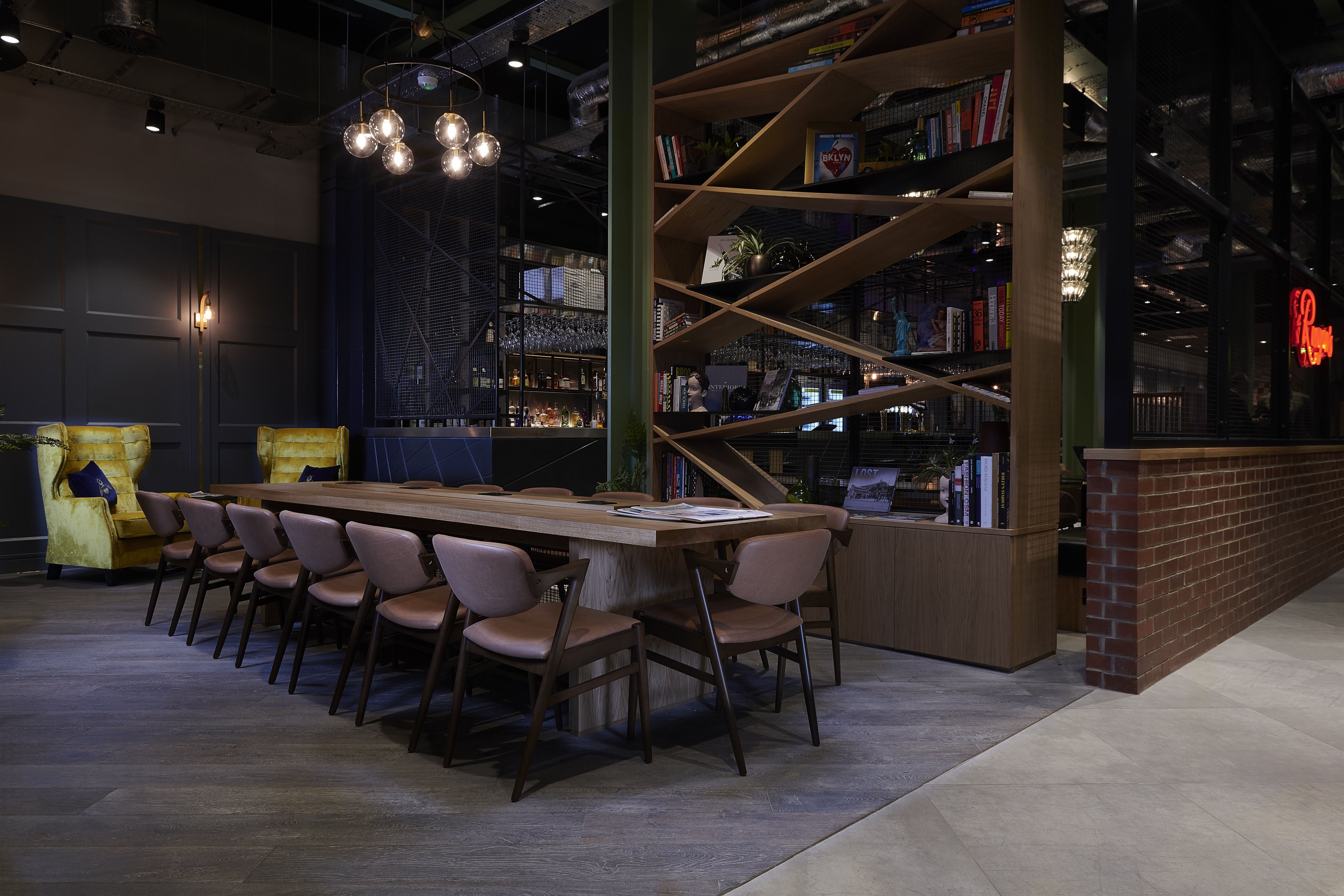
“Both the Gotham and the Brooklyn brands were Robin’s brainchild and he will be spending time ensuring the new sites are as good as the first two. Haydn has taken on the traditional chairman’s role, providing leadership to myself and also maintaining his relationship with current owners, landlords and partners.”
While Sheppard keeps a creator’s eye on the planned expansions of Gotham and Brooklyn, Greenall is very much involved and says he is now “actively looking at new deals” for both brands. Six years after the original Gotham debuted in Manchester, a second is due to open in Glasgow next year, with others expected to follow in Brighton and Bath.
The newer of the two Bespoke brands, Brooklyn, opened in Manchester in February and another is due in Leicester in two years’ time.
In the shorter term, Greenall will oversee the opening of the Telegraph hotel, housed in the former offices of the Coventry Evening Telegraph. The 88-bedroom hotel, which will retain many of the building’s original 1950s features, will have a rooftop bar, restaurant and duplex penthouses suites. Greenall says: “This will be a fantastic hotel – the design is stunning.”
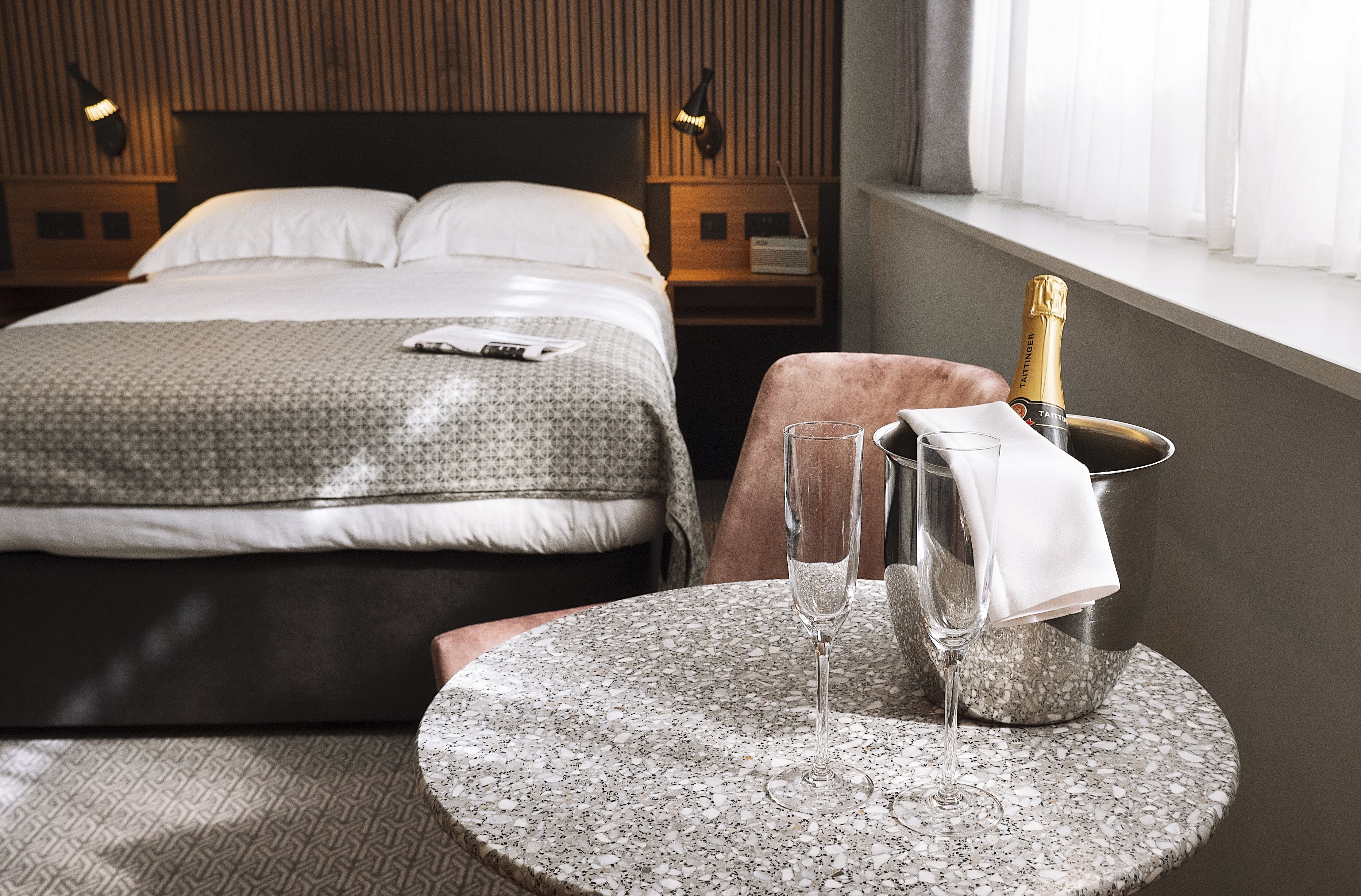
Business after Covid
After a turbulent spring and summer, Greenall has a balanced view of how Bespoke, and the hospitality business generally, will cope through Covid-19 and beyond. He is bullish about the increase in the staycation market continuing into 2021 and 2022, but is much less optimistic about business guests.
He says: “I have huge concerns for the corporate market and hotels that rely on international tourists. Instant PCR [polymerase chain reaction] testing needs to be introduced and I feel positive that the Oxford University vaccine will be a success and come into play next year.
“However, in a similar way that the conference market never recovered after the 2007 crash, I think the corporate hotel market will never return to pre-Covid levels. Hotels will need to rethink their strategies. Unfortunately, I am particularly concerned that as we go into winter many hotels just won’t have the cash reserves to see it through to spring.”
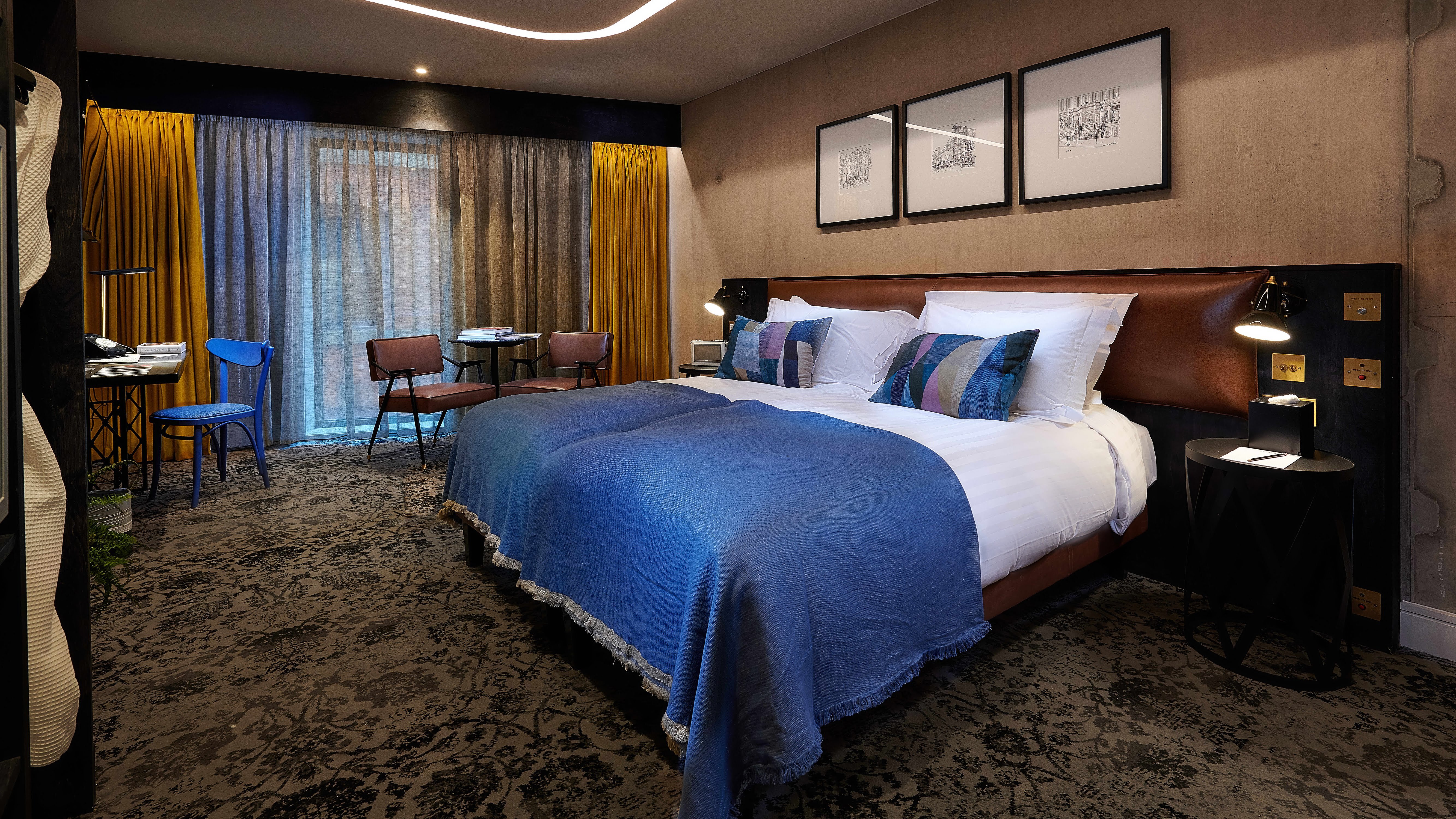
Greenall’s mix of optimism for some sectors and pessimism for others has influenced Bespoke’s reopening approach. A handful that relied almost entirely on groups and tours – many of which have still not resumed – are to remain closed until spring 2021.
The hotels that have opened have done well. Gotham had its best August since opening in 2015, with occupancy “in the high 70s”, while some of Bespoke’s Scottish hotels, benefitting from staycations, saw between 10% and 20% increase in revenue in August compared to last year. The Lugger in Cornwall was another success, with a 37.5% revenue per available room increase, again comparing this August to last.
However, the fact that Bespoke, like other hotel companies, has judged it too early to open its entire estate indicates that Greenall is facing the same challenges as most hotel company bosses. Any recovery is going to be patchy and intermittent. Tough times are not going to disappear immediately and, in short, there could be easier times for a new chief executive to pick up the reins.
Statistics
Bespoke Hotels
Number of hotels 60+
Number of bedrooms 4,000 approx
Number of hotels in pipeline 19
Number of bedrooms in pipeline 2,363
Shearings Hotels
- 40 hotels and 3,100 bedrooms#
Thomas Greenall’s CV
Age 35
Education Eton College and Durham University (left without a degree)
September 2004-March 2008 National hunt jockey, Mick Easterby Racing
September 2008-May 2010 Sales director, Nasstar
June 2010-September 2011 Business development manager, Daresbury Restaurants (Greens)
March 2012-July 2012 Resident manager, Cotswold House Hotel (Bespoke)
July 2012-December 2012 General manager, Grosvenor hotel (Bespoke), Shaftesbury
January 2013-October 2016 Financial operations manager (Bespoke)
November 2016-June 2020 Commercial director (Bespoke)
July 2020-present Chief executive (Bespoke)
The racing years
Not many business leaders have ridden in the Grand National (twice), but Thomas Greenall plays down his success on the racecourse.
He says he loved his racing years, which included being named champion amateur jockey in the National Hunt Championship in 2004/05 and 2006/07, and subsequently champion point-to-point rider.
He says: “There were times when I considered turning professional, but unless you are in the top 10 in the country, there isn’t much point. To be frank, I wasn’t quite good enough.”
When Greenall stopped racing in 2013, newspaper write-ups gave him a glowing send-off, noting approvingly that he had won the first race in which he competed and went on to notable success.
The report added that Greenall’s race style was to hold up his ride early on and “cruise into the race about three fences from home like a fresh horse”.



